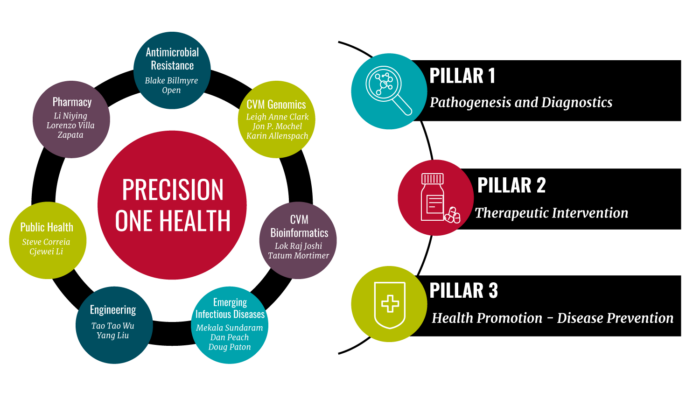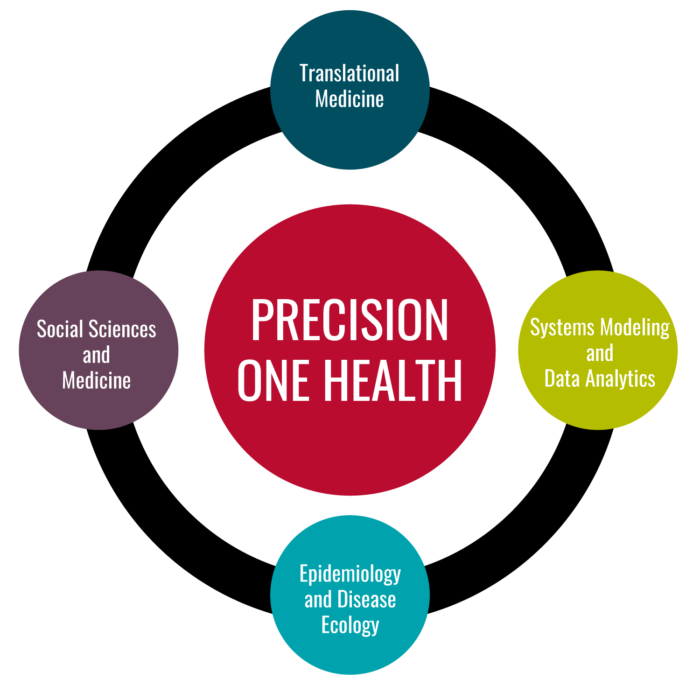Precision One Health (POH) is committed to studying the intricate connections among genetics, the environment, and lifestyle factors and their effects on disease prevention and treatment. Our main goal is to develop personalized healthcare strategies that provide individuals with the most effective treatment options at the right time. Our mission is centered on personalized medicine, which includes risk assessment, exploration of significant biological mutations, vaccine and drug development, and selection of customized therapies based on molecular profiling.
Our interdisciplinary team consists of members from several colleges, schools, centers, and laboratories, representing a wide range of disciplines such as Veterinary Medicine, Public Health, Pharmacy, Engineering, and the Savannah River Ecology Lab with tremendous potential of expanding contributions and collaborations in Arts and Sciences, Law, Agriculture, Forestry and Natural Resources, Journalism and Mass Communication. Through these collaborations, we aim to accelerate UGA’s research momentum and secure grants from organizations such as the National Institutes of Health, National Science Foundation, USDA, Department of Defense, industry, and foundations. Additionally, this initiative will attract and support more PhD students and Post Doctoral Fellows in each participating unit, contributing to the growth and prestige of the University’s Graduate and Fellows programs. The Precision Health and Medicine Initiative also has the potential to achieve center or institute status, benefiting all partners and the University of Georgia as a whole.
A major aspect of precision health and medicine is the comprehensive profiling of “omics” in humans and animals, including wildlife. This will help identify molecular profiles and biomarkers associated with disease, as well as novel insights into disease pathogenesis and effective prevention and treatment strategies. Animal-centric studies and human-centric studies, particularly those using animal models of human disease, can inform and complement each other in this endeavor. This holistic “One Health” approach also improves readiness for disease outbreaks and community health issues, safeguarding individuals, public health, food supply, agriculture, and the environment.
This initiative is broad, bringing together experts in areas such as nutrition, physiology, immunology, infectious disease, genetics, neurodegenerative disease, public health, journalism, engineering, and agriculture with experts in data analysis in areas such as the Complex Carbohydrate Research Center (CCRC), all exploiting the powerful resources of UGA’s core facilities in areas such as sequencing, NMR, and mass spectrometry-based OMICS (metabolomics, glycomics, proteomics) and computer science. It is also important to note that, although most initiative faculty will focus on research, a sustainable precision health and medicine program needs strong service facilities to translate research findings into practice. The CCRC has experience in running service facilities, and the College of Veterinary Medicine, the Medical Partnership, the College of Pharmacy, and the College of Public Health are well-positioned to translate and scale up the team’s research findings into clinical applications.

 POH Cores
POH Cores